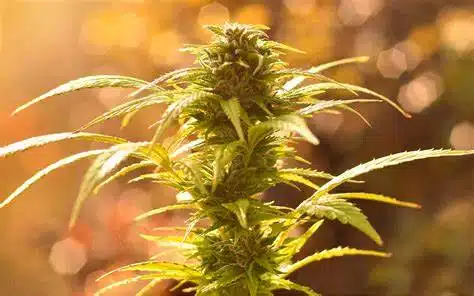What Is Weed-Induced Psychosis?
Welcome to another informative blog post brought to you by West Coast Releaf Online Dispensary, your trusted source for all things cannabis. In this article, we will delve into the intriguing topic of weed-induced psychosis. As the popularity of cannabis continues to grow, it is essential to understand the potential risks and effects associated with its use. So, let’s explore the connection between cannabis and psychosis and shed light on this important subject.
What is Psychosis?
Psychosis is a complex mental health condition that can be caused by a variety of factors. While the exact cause of psychosis is not fully understood, researchers believe that it is likely a combination of genetic, environmental, and neurobiological factors. Here are some potential reasons why people may develop psychosis:
-
Genetics: There is evidence to suggest that certain genetic factors can increase the risk of developing psychosis. Individuals with a family history of mental health disorders, such as schizophrenia, are more likely to experience psychosis.
-
Brain chemistry and structure: Imbalances in neurotransmitters, which are chemicals that transmit signals in the brain, have been associated with psychosis. Additionally, abnormalities in brain structure and function, such as changes in the size or activity of certain brain regions, may contribute to the development of psychosis.
-
Environmental factors: Traumatic experiences, such as physical or emotional abuse, can increase the risk of developing psychosis. Other environmental factors, such as exposure to toxins or certain infections, may also play a role.
-
Substance use: Substance abuse, including the use of drugs like cannabis, amphetamines, or hallucinogens, can trigger or exacerbate psychosis in susceptible individuals. This is known as substance-induced psychosis.
-
Stress and trauma: High levels of stress or traumatic events can contribute to the development of psychosis. These factors can disrupt the brain’s normal functioning and increase vulnerability to mental health conditions.
It is important to note that not everyone who experiences these factors will develop psychosis, and the presence of these factors does not guarantee the development of psychosis. Psychosis is a complex condition that requires a comprehensive evaluation by a healthcare professional for an accurate diagnosis and appropriate treatment.
The Link Between Cannabis Use and Psychosis
Cannabis use has long been a topic of debate, with proponents highlighting its medicinal benefits and opponents expressing concerns about potential risks. One significant concern is the association between cannabis use and the development of psychosis. Psychosis refers to a mental state characterized by a loss of touch with reality, including hallucinations, delusions, and disorganized thinking.
Research has shown that heavy and prolonged cannabis use can increase the risk of developing psychosis, particularly in individuals who are genetically predisposed to mental health disorders. While not everyone who uses cannabis will experience psychosis, it is crucial to be aware of the potential risks, especially for those with a family history of mental illness.
Understanding the Neurobiological Mechanisms
To comprehend the relationship between cannabis and psychosis, it is essential to explore the neurobiological mechanisms at play. THC (tetrahydrocannabinol), the primary psychoactive compound in cannabis, interacts with the brain’s endocannabinoid system, which regulates various physiological processes, including mood, cognition, and perception.
Excessive THC consumption can disrupt the delicate balance of neurotransmitters in the brain, leading to altered perception and cognition. This disruption can contribute to the development of psychotic symptoms in susceptible individuals. Additionally, the potency of cannabis, measured by THC concentration, plays a role in determining the likelihood of experiencing psychosis.
Identifying Risk Factors for Cannabis-Induced Psychosis
While cannabis use alone does not guarantee the development of psychosis, certain risk factors increase the likelihood. Understanding these risk factors can help individuals make informed decisions about their cannabis consumption. Some of the key risk factors include:
- Genetics: Individuals with a family history of mental health disorders, such as schizophrenia, are more susceptible to cannabis-induced psychosis.
- Age of onset: Early initiation of cannabis use, particularly during adolescence, increases the risk of developing psychosis.
- Cannabis potency: High-potency cannabis products, such as concentrates and edibles, pose a greater risk of triggering psychosis compared to lower-potency options.
- Frequency and duration: Heavy and prolonged cannabis use, especially daily or near-daily consumption, raises the risk of psychosis.
- Co-occurring substance use: Concurrent use of other substances, such as alcohol or stimulants, can amplify the risk of cannabis-induced psychosis.
The Impact of Cannabis Potency on Psychosis Risk
One crucial aspect to consider when discussing cannabis-induced psychosis is the potency of the cannabis products consumed. The THC concentration in cannabis can vary significantly, ranging from low levels in traditional flower buds to extremely high levels in concentrates and edibles.
Research suggests that higher THC concentrations increase the risk of developing psychosis. This is because THC directly affects the brain’s cannabinoid receptors, altering neurotransmitter release and disrupting normal brain function. Therefore, individuals who opt for high-potency cannabis products should be particularly cautious and mindful of their consumption to minimize the risk of psychosis.
Cannabis-Induced Psychosis in Adolescents and Young Adults
Adolescence and young adulthood are critical periods of brain development, making this demographic more vulnerable to the potential effects of cannabis use. Studies have shown that cannabis use during this stage can have a more significant impact on brain structure and function, potentially increasing the risk of psychosis.
It is crucial to educate young individuals about the potential risks associated with cannabis use, especially in the context of psychosis. Promoting responsible and informed decision-making can help mitigate the potential negative consequences and ensure the well-being of this vulnerable population.
The Long-Term Effects of Cannabis Use on Psychosis Risk
While the immediate effects of cannabis use on psychosis risk are well-documented, it is also essential to consider the long-term implications. Prolonged and heavy cannabis use can have lasting effects on mental health, including an increased risk of developing chronic psychotic disorders like schizophrenia.
Research suggests that individuals who use cannabis regularly for an extended period are more likely to experience persistent psychotic symptoms and have a higher risk of transitioning to a diagnosed psychotic disorder. Therefore, it is crucial to monitor and address cannabis use patterns to minimize the long-term impact on mental health.
The Role of CBD in Mitigating Psychosis Risk
While THC has been primarily associated with the development of psychosis, CBD (cannabidiol), another prominent compound in cannabis, has shown potential in mitigating these risks. CBD has been found to have antipsychotic properties and may counteract some of the adverse effects of THC.
Studies have shown that CBD can modulate the brain’s neurotransmitter systems, potentially reducing the risk of psychosis. However, further research is needed to fully understand the mechanisms and determine the optimal CBD-to-THC ratio for minimizing psychosis risk.
Take Care Of Your Mental Health
Taking care of your mental health is crucial for several reasons:
-
Overall well-being: Mental health is an essential component of your overall well-being. Just as you prioritize your physical health by eating well and exercising, taking care of your mental health is equally important. It contributes to your overall happiness, satisfaction, and quality of life.
-
Emotional resilience: When you prioritize your mental health, you build emotional resilience. This means you are better equipped to handle life’s challenges, stressors, and setbacks. You develop coping mechanisms and strategies to navigate difficult situations, which can lead to improved emotional well-being.
-
Productivity and performance: Good mental health positively impacts your productivity and performance in various areas of life. When your mind is in a healthy state, you can focus better, think more clearly, and make sound decisions. This can enhance your performance at work, school, or any other endeavors you pursue.
-
Relationships and social connections: Mental health plays a significant role in your relationships and social connections. When you prioritize your mental well-being, you are better able to communicate effectively, empathize with others, and maintain healthy boundaries. This can lead to more fulfilling and meaningful relationships with family, friends, and colleagues.
-
Physical health: There is a strong connection between mental and physical health. Poor mental health can contribute to physical health issues such as headaches, digestive problems, and weakened immune system. Conversely, taking care of your mental health can have a positive impact on your physical well-being, promoting better sleep, increased energy levels, and overall improved physical health.
-
Self-awareness and personal growth: Prioritizing your mental health involves self-reflection and self-awareness. It allows you to understand your emotions, thoughts, and behaviors more deeply. This self-awareness can lead to personal growth, self-improvement, and a better understanding of your values, goals, and aspirations.
-
Prevention and early intervention: Taking care of your mental health can help prevent the development of mental health disorders or catch them early on. By practicing self-care, seeking support when needed, and being proactive about your mental well-being, you can reduce the risk of more severe mental health issues and promote early intervention if necessary.
In conclusion, taking care of your mental health is essential for your overall well-being, relationships, productivity, and personal growth. It is an investment in yourself and can lead to a happier, healthier, and more fulfilling life.
Mental Health Education
Mental health education is important for several reasons:
-
Awareness and understanding: Mental health education helps raise awareness and understanding about mental health conditions, their prevalence, and their impact on individuals and society. It helps dispel myths, reduce stigma, and promote empathy and compassion towards those experiencing mental health challenges.
-
Early identification and intervention: Education about mental health equips individuals with knowledge and skills to recognize early signs and symptoms of mental health issues in themselves and others. This early identification can lead to timely intervention and support, preventing the escalation of mental health problems and promoting better outcomes.
-
Promoting help-seeking behavior: Mental health education encourages individuals to seek help when needed. It provides information about available resources, support services, and treatment options. By promoting help-seeking behavior, mental health education can ensure that individuals receive the necessary support and care they require.
-
Building resilience and coping skills: Education about mental health equips individuals with strategies and tools to build resilience and cope with life’s challenges. It teaches skills such as stress management, emotional regulation, problem-solving, and self-care. These skills are essential for maintaining good mental health and navigating difficult situations effectively.
-
Creating supportive environments: Mental health education helps create supportive environments in various settings, including schools, workplaces, and communities. It promotes understanding, acceptance, and inclusion of individuals with mental health conditions. This can lead to the development of supportive networks, reduced discrimination, and improved overall well-being.
-
Prevention and promotion of mental well-being: Mental health education focuses not only on addressing mental health issues but also on promoting mental well-being. It emphasizes the importance of self-care, healthy lifestyle choices, and positive mental health practices. By promoting prevention and proactive mental health care, education can contribute to the overall well-being of individuals and communities.
-
Empowerment and advocacy: Mental health education empowers individuals to take control of their mental health and advocate for themselves and others. It provides knowledge about rights, resources, and strategies for self-advocacy. This empowerment can lead to increased self-confidence, improved self-esteem, and a sense of agency in managing mental health.
In summary, mental health education is important for raising awareness, promoting early intervention, building resilience, creating supportive environments, preventing mental health issues, and empowering individuals. By educating ourselves and others about mental health, we can contribute to a more compassionate, inclusive, and mentally healthy society.
Conclusion
In conclusion, the relationship between cannabis use and psychosis is a complex and multifaceted topic. While cannabis has numerous potential benefits, it is crucial to be aware of the potential risks, particularly regarding psychosis. Understanding the neurobiological mechanisms, identifying risk factors, and promoting responsible cannabis use can help individuals make informed decisions and minimize the potential negative consequences.
Remember, if you are considering using cannabis or have concerns about its impact on your mental health, consult with a healthcare professional. And for all your cannabis needs, trust West Coast Releaf Online Dispensary, your reliable source for high-quality cannabis products. Stay informed, stay responsible, and enjoy the benefits of cannabis safely. If you are interested in buying weed online and THC products, check out West Coast Releaf online weed dispensary and shop for your weed online and cannabis products at westcoastreleaf.co!













